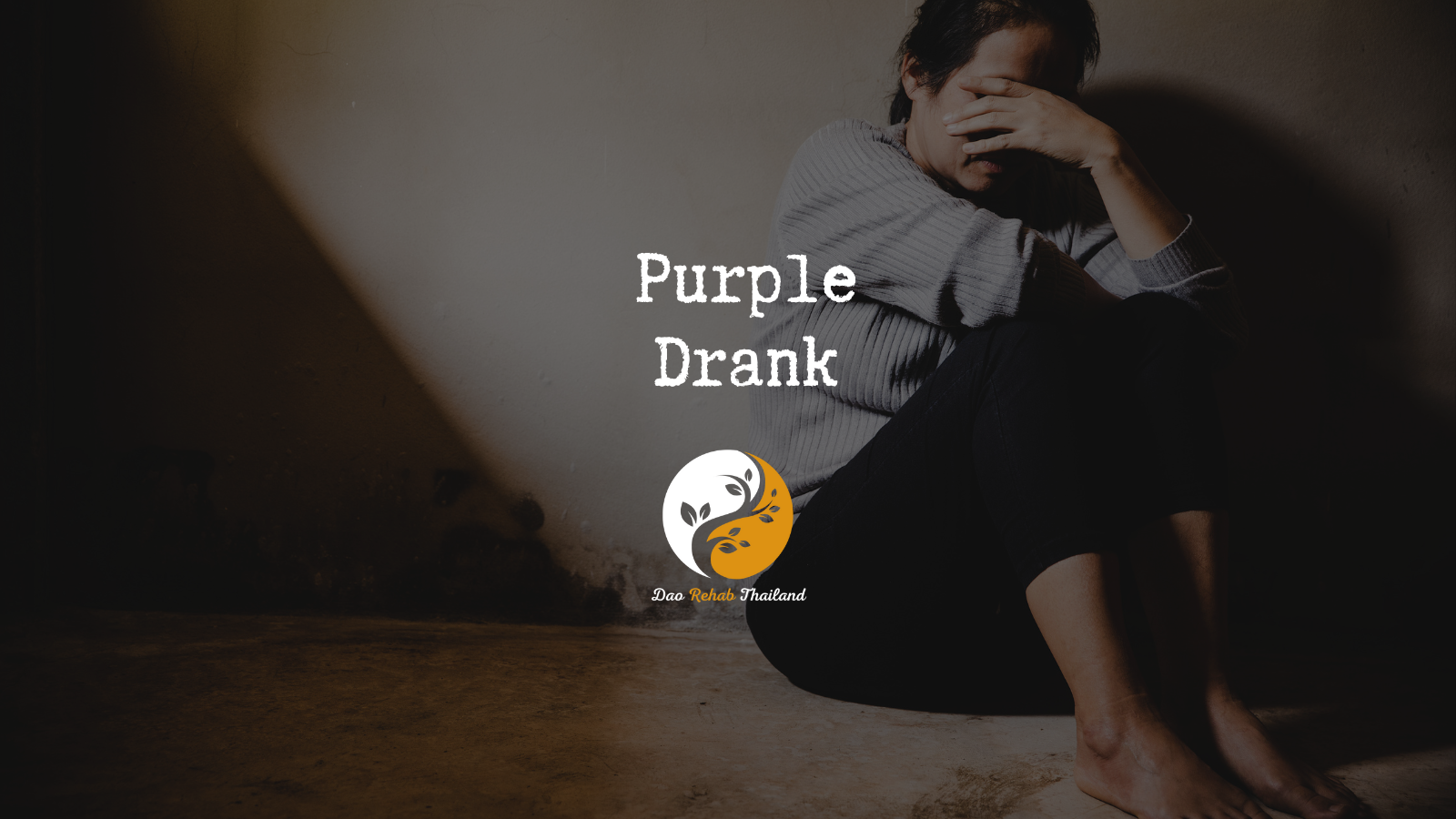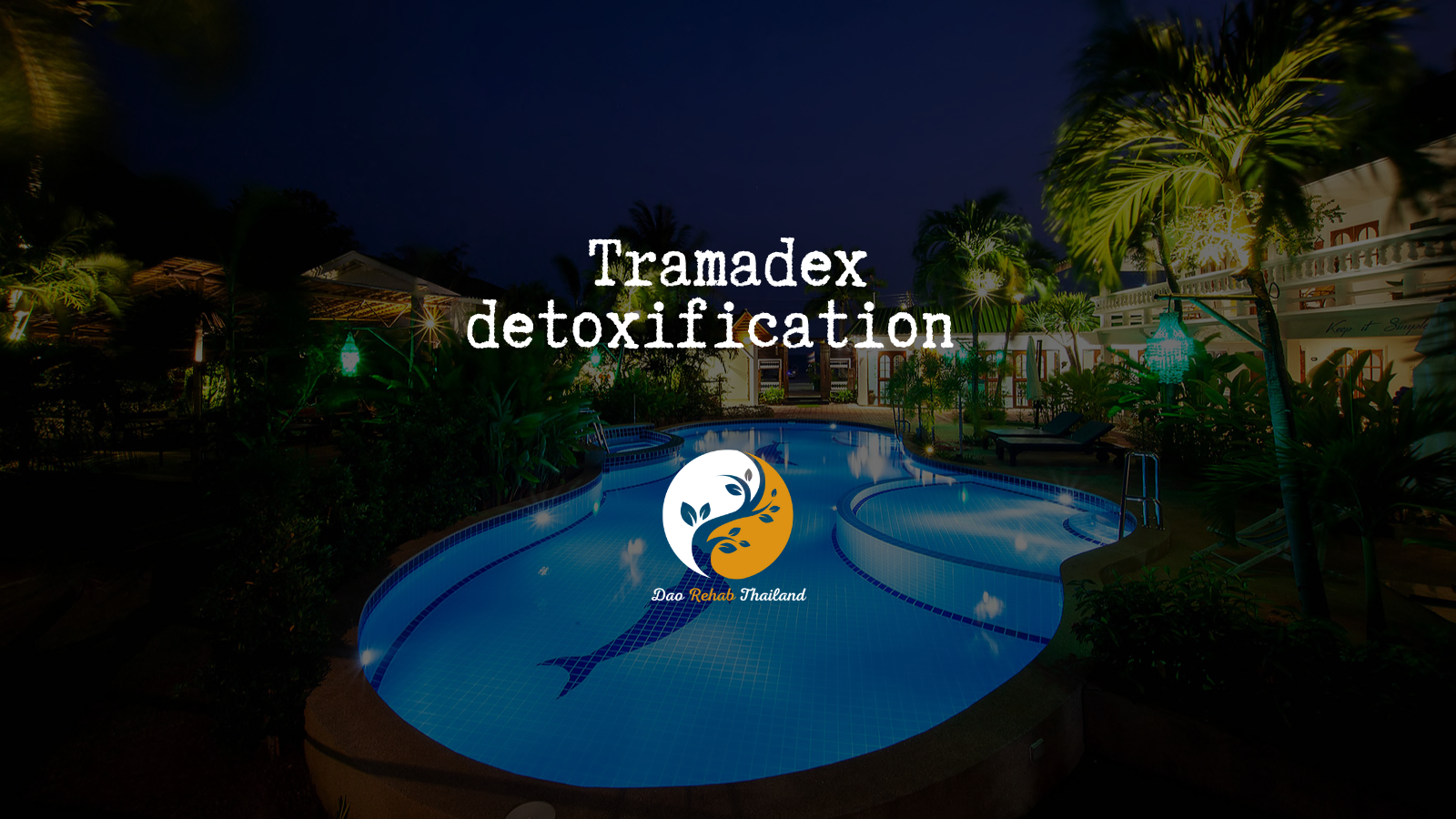
Purple Drank – holistic rehab in thailand
Purple Drank
“Turning the impossible into possible”

"Detox from Purple Drank at a Luxury Holistic Center in Thailand and Israel"

Purple Drank, also known as "Lean" or "Sizzurp"
Purple Drank, also known as “Lean” or “Sizzurp,” is a liquid drug that became popular primarily within the American hip-hop scene. The drug typically consists of a combination of cough syrup containing codeine (an opioid) and promethazine (an antihistamine) mixed with soft drinks, and sometimes candy to enhance the flavor. The name “Purple Drank” comes from the purple color that the cough syrup gives to the mixture.
History and Development: The origins of the drug trace back to the southern United States in the 1990s, where artists in the hip-hop scene began using it and mentioning it in songs. Purple Drank became a cultural symbol of the scene, associated with a feeling of relaxation and euphoria provided by the drug.
"Holistic Center for Trauma, Addiction, and Mental Imbalance Treatment in Thailand"
“Come to the beginning of your journey to freedom from addiction to alcohol, drugs, and pills, and rediscover your life within the serene embrace of DaoTherapy Rehab in Thailand—where holistic healing meets empowering recovery.”
DaoTherapy Holistic Rehab
Key Elements of Purple Drank Detox:
Medical Supervision: Purple Drank detox must be conducted under medical supervision, as the body may experience withdrawal symptoms. These can include nausea, anxiety, muscle aches, and insomnia. A medical team will monitor and manage these symptoms to ensure the patient’s safety and comfort.
Holistic Therapies:
Holistic Therapies: Many detox programs incorporate holistic therapies such as mindfulness, yoga, and meditation to help individuals cope with stress and anxiety during the detox process. These therapies support the mind-body connection and contribute to overall recovery.
Tapering Process
Tapering Process: Purple Drank detox often involves a gradual tapering of the drug to reduce withdrawal severity. Doctors will slowly decrease the dosage over time to allow the body to adjust to lower levels of the substance.
Psychological Support:
Psychological Support: Like any addiction recovery process, detox from Purple Drank includes psychological support. This can involve counseling, therapy, or support groups to address the mental and emotional aspects of addiction.
Post-Detox Treatment:
Post-Detox Treatment: After completing detox, continuing treatment is crucial to prevent relapse. This often includes participation in ongoing therapy, group support, and the development of new coping strategies to maintain sobriety.
Effects and Usage:
Effects and Usage:
- Psychoactive Effects: The codeine produces a sense of euphoria and relaxation, while the promethazine enhances the sedative effect of the codeine. Together, these substances create a feeling of carelessness and lethargy.
- Drowsiness: Users report strong feelings of drowsiness and sleepiness.
- Addiction Risk: Codeine is addictive, and regular use of Purple Drank can lead to physical and psychological dependence.
Dangers and Side Effects:
- Respiratory Depression: Like other opioids, codeine can cause respiratory depression, especially in high doses or when combined with other substances.
- Liver Damage: Prolonged use of cough syrup containing active ingredients can damage the liver.
- Dehydration and Organ Damage: The soft drinks and large amounts of sugar in the mixture can lead to dehydration and damage to the kidneys and other body systems.
- Overdose: Excessive use of Purple Drank can lead to overdose and death.
Cultural Popularity: Mentions in the hip-hop scene and the drug’s growing popularity over the years have been reinforced by famous artists referencing it in their songs and discussing it in interviews. Although Purple Drank was initially perceived as a cultural “trend,” the health risks and addiction potential have become a significant topic in discussions about drugs in music culture.
Summary: Purple Drank is a drug originating from the hip-hop world, based on cough syrup containing codeine and promethazine. It provides euphoria and relaxation but poses serious risks such as respiratory depression, liver damage, and addiction. Raising awareness of its dangers is important to prevent its spread and protect those who use it.

contact us
Contact us with your questions
We would love to speak with you! Feel free to reach out with any questions.

get in touch
Schedule a free consultation
Schedule a free consultation with our team and let’s make things happen!
What to Know About Using Purple Drank:
What to Know About Using Purple Drank:
1. Health Risks:
– Addiction: Codeine, the main ingredient in Purple Drank, is addictive. Regular use can lead to physical and psychological dependence.
– Respiratory Depression: Codeine use can cause respiratory depression, especially at high doses or when combined with other substances, posing a life-threatening risk.
– Liver Damage: Promethazine and the combination of substances in the syrup can damage the liver, particularly with prolonged use.
– Risk of Overdose: It is easy to overdose on codeine, especially when mixed with other drinks, which can result in life-threatening situations or death.
2. Short-Term Effects:
– Euphoria and Relaxation: Users may feel a strong sense of euphoria and relaxation, but the effect is relatively short-lived.
– Drowsiness: A common feeling of heavy drowsiness, often rendering users unable to function properly.
– Coordination Impairment: The drug can cause coordination issues and a general feeling of fatigue.
3. Long-Term Effects:
– Respiratory System Damage: Prolonged use of Purple Drank can lead to chronic breathing problems.
– General Health Issues: Symptoms such as hallucinations, confusion, and decreased concentration and memory can appear.
– Physical Dependence: Users may experience severe withdrawal symptoms, including pain, anxiety, fatigue, and depression when trying to stop.
4. Social and Psychological Dangers:
– Daily Function Impairment: Drug use can negatively affect work, studies, and social relationships.
– Psychological Issues: Anxiety and depression may develop and worsen over time, especially with prolonged use.
– Social Stigma: Users may feel social alienation and have difficulty integrating into society due to drug use.
5. Prevention and Treatment:
– Awareness: It is important to understand the risks and recognize that drug use can lead to addiction and serious health issues.
– Treatment and Support: In cases of addiction, seeking professional treatment that includes psychological counseling, group support, and appropriate rehabilitation programs is recommended.
Using Purple Drank involves significant health and physical risks, including addiction, respiratory depression, and damage to vital organs. Awareness of the drug’s dangers and seeking help and support are critical for maintaining health and preventing addiction.
Withdrawal Symptoms from Purple Drank:
Withdrawal Symptoms from Purple Drank:
The withdrawal process from Purple Drank, which contains codeine and promethazine, can be difficult and accompanied by severe physical and psychological symptoms. The symptoms are similar to those of withdrawal from other opioids due to the primary opioid component.
1. Physical Symptoms:
– Muscle and Joint Pain: General body pain is a common symptom in codeine withdrawal.
– Nausea and Vomiting: These symptoms can lead to dehydration and fatigue.
– Excessive Sweating: Heavy sweating as part of the body’s process to detoxify.
– Rapid Heartbeat: Increased heart rate that may contribute to heightened anxiety.
– Insomnia: Difficulty falling asleep or irregular sleep patterns, leading to extreme fatigue.
2. Psychological Symptoms:
– Anxiety: Increased anxiety resulting from the inability to adapt without the drug.
– Depression: Deep depression that may include feelings of hopelessness and low mood.
– Irritability and Restlessness: Inability to sit still or relax.
– Intense Cravings: A strong urge to use the drug again, which complicates the withdrawal process.
3. Severe Psychological Symptoms:
– Hallucinations: Severe cases of withdrawal may include hallucinations or delusional thinking.
– Confusion and Lack of Concentration: Feelings of confusion that make concentration and daily functioning difficult.
Duration of Withdrawal:
Withdrawal symptoms can last from a few days to weeks, with the most severe symptoms usually appearing in the initial days. Some symptoms, such as anxiety and depression, may persist longer and require prolonged psychological support.
Managing Withdrawal:
The withdrawal process from Purple Drank should ideally be conducted under the supervision of medical and psychological professionals. Medical treatment can help alleviate physical symptoms, while psychological therapy and support groups can assist with managing mental symptoms.
Withdrawal from Purple Drank involves complex physical and psychological symptoms and requires professional and medical support to ensure a safe and effective process. Persistence, support, and professional guidance can help the patient overcome withdrawal and rebuild their life.
Suggestions for Detoxing from Purple Drank:
Suggestions for Detoxing from Purple Drank:
The detox process from Purple Drank requires a holistic approach that includes medical treatment, psychological support, and a healthy lifestyle. Here are some suggestions to help manage the detox process:
1. Seek Professional Medical Treatment:
– Hospitalization in a Detox Center: To receive concentrated care and medical supervision during the initial withdrawal phase.
– Use of Medication: A doctor may recommend medications to relieve withdrawal symptoms, such as pain, anxiety, and sleep issues.
2. Psychological Support:
– Individual Therapy: Working with a psychologist or addiction specialist to understand personal reasons for drug use and develop coping strategies.
– Group Therapy: Participating in support groups, such as 12-step programs, to share experiences and receive support from others undergoing a similar process.
3. Create a Supportive Environment:
– Family and Friends Support: Surrounding yourself with loved ones who can offer emotional support and help with the detox process.
– Social Support: Finding a community or support group that understands the challenges and can serve as a source of encouragement.
4. Improve Lifestyle Habits:
– Balanced Nutrition: Maintaining a nutritious and balanced diet helps with the recovery process.
– Physical Activity: Regular exercise helps improve mood and reduce feelings of depression and anxiety.
– Relaxation Techniques: Using meditation, yoga, or breathing exercises to calm the body and mind.
5. Relapse Prevention:
– Identify Triggers: Understanding situations, places, or people that can trigger the desire to use and developing strategies to avoid them.
– Action Plan: Building a contingency plan for challenging situations, including alternative coping methods.
6. Seek Continuous Professional Help:
– Regular Psychological Follow-Up: Ongoing therapy with a psychologist or counselor can help maintain stability and provide long-term support.
– Additional Therapies: Integrating therapies such as art therapy, music therapy, or animal-assisted therapy to enrich the rehabilitation process.
Detoxing from Purple Drank is challenging, but with persistence, professional support, and the right strategies, it is possible to succeed and achieve full recovery.
Psychological Support:
Psychological Support: Like any addiction recovery process, detox from Subutex includes psychological support. This can involve counseling, therapy, or support groups to address the mental and emotional aspects of addiction.








